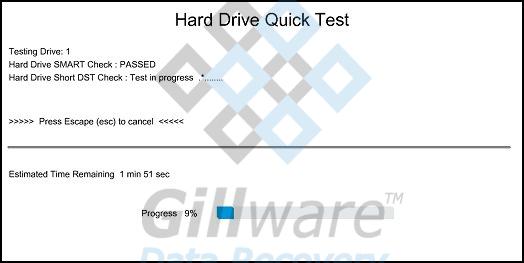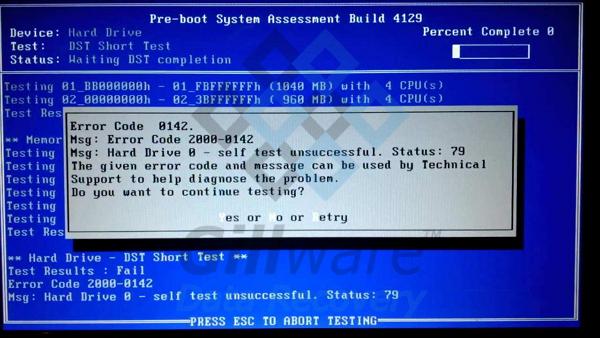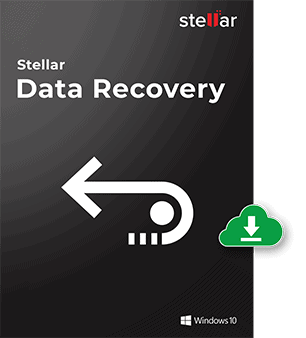Short DST Failed! Disk Self Testing: The Long and Short of It
Hard drives can talk, as long as you know how to listen. And at Gillware, boy do we know how to listen. We deal with failed and failing hard drives by the truckload every day, and have for well over a decade. So without further ado, let’s dive into the world of self-tests and S.M.A.R.T. and find out what a short DST failed error message means, how your hard drive keeps tabs on its own health… and how it might try to warn you if something’s wrong.
A Long or Short DST Failure is a sign of hard disk failure
“DST” stands for “Disk Self Test.” It refers to an analysis your computer hard drive performs on its own performance. If it cannot pass a self-test, it means that it is no longer capable of properly functioning.
What is a hard drive short DST check”?
DST stands for Disk Self Test, and there are two different kinds of disk self-test your hard drive can undergo. One test is the long Disk Self Test or long DST, and the other test is the short Disk Self Test or short DST. These tests are both procedures a hard drive can make itself undergo to gauge its performance and its health.
When your hard drive runs a short DST, it quickly takes stock of its various components. The short DST only focuses on the major components, such as the read/write heads, ROM, platters, control board, and motor. It makes sure these major components all function within acceptable parameters and returns a warning message if any of them do not. This process only takes a few minutes, during which you can still use the hard drive.

RELATED ARTICLES:
- Short DST Repair in Seagate Hard Drive
- Hard Drive with “Inaccessible Boot Device”
- Dell Error Code 2000-0142: What Is It?
n a long or extended DST, in addition to testing the hard drive’s major components, it also conducts a thorough review of the data on your platters. If the long DST uncovers damaged or corrupted areas of the disk, it works to reallocate and re-map the damaged portions. This way, your hard drive will not run into these bad areas again.
The only difference between a short DST and a long DST is that one is more in-depth than the other and that a long DST consumes enough resources that you cannot use your hard drive while performing the test. Both short DST and long DST are non-destructive tests, meaning they do not alter or destroy the data on your drive.
Can I fix a hard disk short DST failed error message?
Your hard drive depends on its heads, platters, control board, and motor to function. Unfortunately, any one of the components failing spells doom for your hard drive. There is no way to fix any of these components on your own.
Even professional data recovery experts can only make temporary repairs.
However, you might also get a hard disk short DST failed error for another, more benign reason. It could have to do with the connection between your hard drive and your computer.
If the SATA or IDE cable connecting your hard drive to your motherboard comes loose or degrades, it could result in performance issues since data cannot flow to and from the hard drive. Adjusting or replacing the cable may fix a hard disk short DST error.
When you encounter a hard disk short DST failed error message, pay close attention to your hard disk drive’s behavior.
If you notice the drive failing to spin up, or if it makes strange noises such as beeping or clicking, unplug it immediately. This behavior indicates severe disk failure.
Questions? Contact our Client Advisor

What does “hard drive short DST check failed” mean?
When a hard disk short DST check fails, it usually means your hard drive has encountered a problem with one of the tested components. Some manufacturers, such as HP and Dell, build automatic DST software into their products, and the short DST check runs every time you boot up your computer.
If the BIOS gives you a short DST failure error message, it’s a sign that your hard drive no longer works properly. You should focus on getting a replacement hard disk drive, either through your PC manufacturer’s warranty program or on your own. If you need data recovered from a hard disk that has failed a short DST check, contact one of our recovery client advisors today.
If the BIOS gives you a short DST failure error message, it’s a sign that your hard drive no longer works properly. You should focus on getting a replacement hard disk drive, either through your PC manufacturer’s warranty program or on your own. If you need data recovered from a hard disk that has failed a short DST check, contact one of our recovery client advisors today.
How do I run a short DST on a hard disk?
You can run a disk self-check on your computer’s hard drive using a wide variety of tools, depending on the manufacturer. For example, if you own a Dell or HP PC, you can rely on diagnostic tools built right into the BIOS at startup. You can assess the health of a Seagate hard drive using SeaTools. Western Digital hard drives can be tested using Data Lifeguard. You can run both short and extended diagnostic tests.

Software tools help you monitor your hard drive’s health using S.M.A.R.T. This acronym stands for “Self-Monitoring, Analysis, and Reporting Technology.” S.M.A.R.T. is built into every hard disk drive and measures just about every aspect of its behavior from read/write speeds and error rates to the internal temperature of your drive.
Data Recovery Software to recover
lost or deleted data on Windows
If you’ve lost or deleted any crucial files or folders from your PC, hard disk drive, or USB drive and need to recover it instantly, try our recommended data recovery tool.
Retrieve deleted or lost documents, videos, email files, photos, and more
Restore data from PCs, laptops, HDDs, SSDs, USB drives, etc.
Recover data lost due to deletion, formatting, or corruption

Get Smart With S.M.A.R.T.

The goal of S.M.A.R.T. is to predict hard drive failure. By measuring so many operating parameters, your hard drive can catch itself if its performance begins to fall below optimal standards in any area and send you warning signs. The alerts it sends should give you enough advance warning to start copying over any important files you don’t have backed up before your drive bites the dust.
Unfortunately, things rarely work out that well.
S.M.A.R.T parameters are mostly standardized so that self-testing works the same way even between models of HDD by competing manufacturers, but not fully. Due to the lack of full standardization, your hard drive might struggle to send its findings to you, even if your PC has a motherboard with S.M.A.R.T. capabilities. The next thing you know, you’ve come face to face with a short DST failed error.
You can’t always rely on your computer to be smart enough (or, well, S.M.A.R.T. enough) to tell you if it’s about to fail. That’s why it’s a good idea to regularly run disk self-checks on your own—as well as make sure you’re always keeping your files backed up!
Accidents happen, and if you run into trouble, you can count on Gillware to provide expert, professional, and secure data recoery services.
